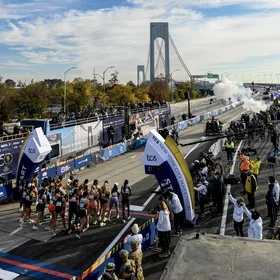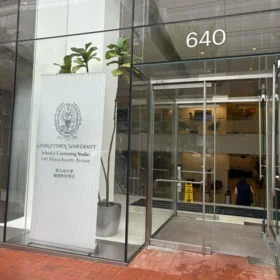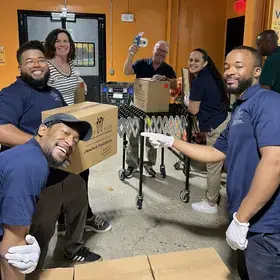Susan Seliga is an alumna of the M.S. in Human Capital Management (HCM) program at Columbia University School of Professional Studies (SPS) and executive director of Human Resources and Talent Strategy at Columbia’s Office of Alumni Relations and Development. A member of the program’s inaugural cohort, she completed her degree in 2020 while continuing to work full-time at the University.
Five years after completing her degree, and with more than 12 years at Columbia under her belt, Seliga reflects on her experience in the program and shares how it informs her work today.
What brought you to the HCM program at SPS?
After many years in the human resources and talent management field, I sought a program that would enhance and deepen my knowledge of human capital management. While my prior experience encompassed many areas of talent management, and I had taken numerous professional development courses over the years, most of the training only skimmed the surface. In contrast, the HCM program provided an in-depth exploration of key topics, blending historical perspectives with insights into current challenges. With work environments undergoing significant transformations in recent years, the program allowed me to analyze these changes in real time, providing an invaluable experience.
Can you tell us about your work in the Office of Alumni Relations & Development?
As executive director of human resources and talent strategy, I lead the department’s human resources and talent management programs, overseeing all areas of the employee life cycle. I serve as a strategic partner to managers across the organization, providing guidance on recruitment, career development, succession planning, staff training, and employee relations issues. My work ensures that our talent strategies align with organizational goals and fosters a culture of growth and engagement. Because our department consists of a diverse range of roles and individuals with a broad array of skills and expertise, one of the most interesting parts of my job is learning and expanding my knowledge in a variety of practice areas. No two days are ever the same!
What lessons from the HCM program have been most valuable to you in your current role?
One of the most valuable lessons I learned in the program is the importance of understanding your organization’s goals to effectively serve as a strategic leader and partner. Every facet of an organization’s work impacts human capital, and having a deep understanding of the work is crucial for success as a human capital management professional. The program also emphasized the need for a holistic approach to the work, rather than a narrow or siloed perspective. It fundamentally changed how I approach my work, as I view challenges and opportunities through the lens of a strategic partner, considering the organization as a whole and leveraging HR programs to help advance its goals.
What’s your favorite memory from your time as a student?
My fondest memories from the program involve engaging classroom discussions, learning alongside my classmates, and experiencing a deep sense of accomplishment at the end of each semester. Our cohort challenged and supported one another while also having fun throughout our journey. As part of the first cohort of the HCM program, we took great pride in being the inaugural graduating class.
How challenging was it to balance school and work, and what advice would you have for early-career HR professionals who may be interested in leveling up their work?
Balancing a master’s program, full-time employment, and life commitments required strong time management, discipline, and prioritization. I made the most of weekends to stay ahead in coursework and began projects early. Staying organized and planning were key to meeting all my obligations. Though the semesters were demanding, the time commitment was manageable. Looking back, I realize how it taught me to maximize the use of my time.
As for advice, always be open to learning and taking on new challenges. Stretch yourself to explore areas of HCM where you may not yet have the most experience or skills. Approach your work with a growth mindset, as our work environments are constantly evolving. For an HCM professional, adaptability is essential, and continual learning will equip you with the knowledge and growth you need to meet new challenges.
What makes Columbia University and its community special?
Columbia is one of the top universities in the world, with a rich history of academic excellence. Its commitment to offering an exceptional education and preparing students for success in a wide range of fields contributes to the innovation and positive impact that our graduates have on society. Columbia’s community extends far beyond a student’s time at the University, offering lifelong membership and access to a powerful global alumni network. The University remains a valuable resource to actively engage with alumni throughout their careers and beyond.
About the Program
The M.S. in Human Capital Management at Columbia University prepares graduates to be world-class HCM strategists able to address changing needs in building and motivating talented, engaged workforces in the private, public, academic, and not-for-profit sectors.
The fall 2025 application deadline for the M.S. in Human Capital Management program is June 1. Learn more about the program here. The program is available part-time, full-time, on campus, and online.


